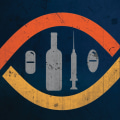Chemical addiction is a difficult topic to discuss, as there is often confusion surrounding substance abuse, dependence, and addiction. Many different factors can contribute to behavioral addictions, and treatment approaches may vary. However, therapy is usually the first recommendation. All forms of addiction, whether related to a substance, behavior, or relationship, produce the same chemical reactions in the brain.
This article will explore the four most common types of addiction in depth. The American Psychiatric Association (APA) uses the Diagnostic and Statistical Manual of Mental Disorders (DSM) to diagnose substance addiction. Alcoholism is a common addiction, with more than 14 million U. S.
adults struggling with Alcohol Use Disorder. Recognizing alcohol addiction can be harder than other substance use disorders due to its legal status for adults 21 and older and its normalization in many social settings. Despite this, it is important to understand that alcohol addiction can have serious consequences. Drug addiction can cause health problems, difficulties at school or work, financial problems, and deteriorating relationships with friends, family and colleagues.
Drug addiction is caused by a combination of genetic, environmental and developmental factors. Video game addiction may be harder to recognize and seek help for due to its lack of obvious consequences. However, it is still important to understand that it can have real repercussions such as mindlessly scrolling through social networks for hours. The fifth edition of the DSM excludes sex addiction, making it somewhat controversial. However, many people who have suffered from other types of addiction can easily recognize it within their own experiences.
Sex addiction is characterized by an inability to control sexual thoughts and behaviors. Gambling addiction is the one behavioral addiction that most closely resembles drug and alcohol addiction. The APA classifies gambling disorder as an addictive disorder and studies show that gambling addictions illuminate the same areas of the brain as drug addictions. Treatment for gambling disorder is generally included in the same type of therapy settings as drug and alcohol abuse. Compulsion means that someone has an irresistible urge or an uncontrollable desire to perform a specific action. It is important to recognize this problem early on in order to prevent an addiction from forming that will be difficult to break. If you or a loved one are struggling with any type of addiction, the Substance Abuse and Mental Health Services Administration (SAMHSA) website can help you find recovery resources including addiction information, a treatment service locator, a toll-free 24-hour information helpline, and more.


